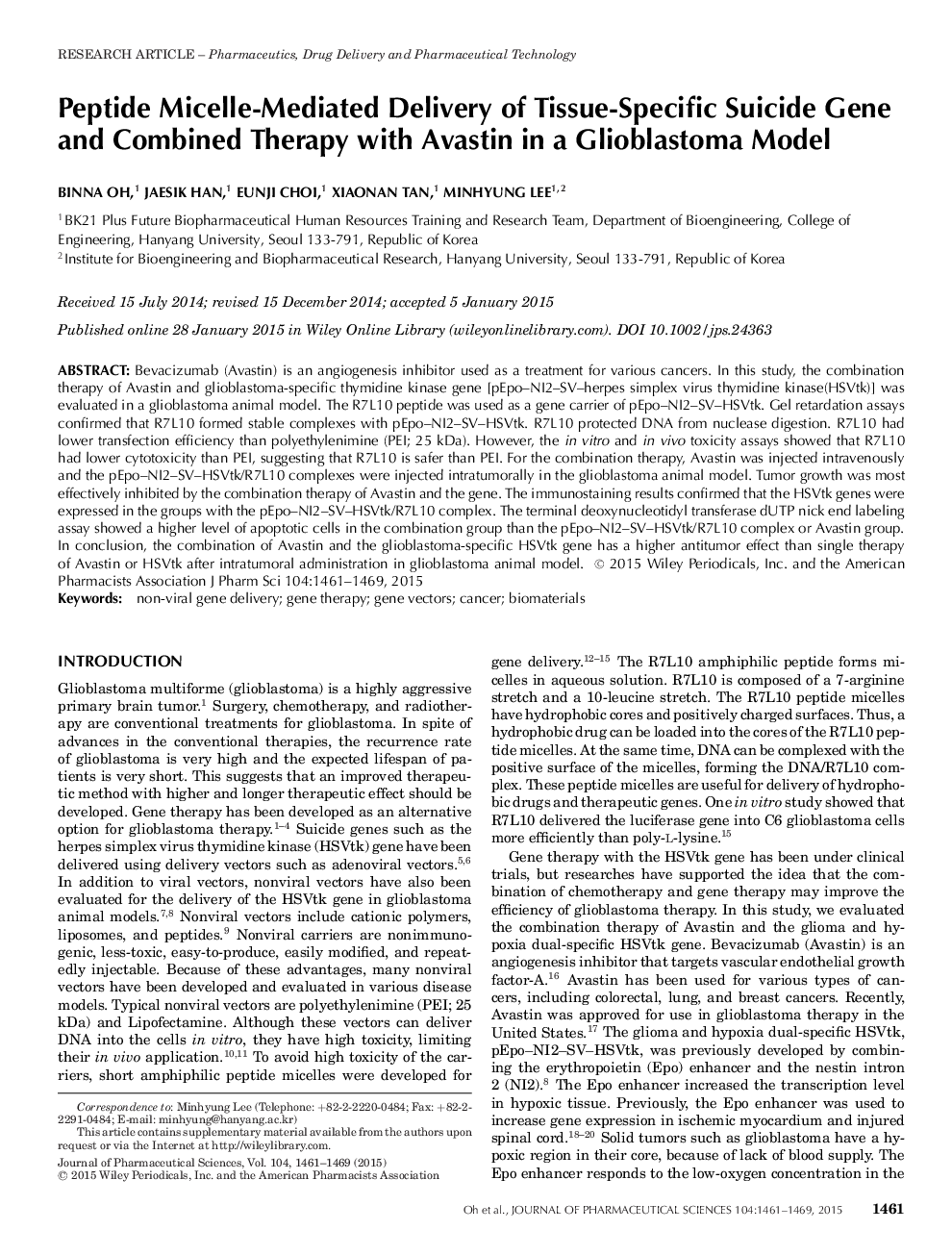| Article ID | Journal | Published Year | Pages | File Type |
|---|---|---|---|---|
| 10162137 | Journal of Pharmaceutical Sciences | 2015 | 9 Pages |
Abstract
Bevacizumab (Avastin) is an angiogenesis inhibitor used as a treatment for various cancers. In this study, the combination therapy of Avastin and glioblastoma-specific thymidine kinase gene [pEpo-NI2-SV-herpes simplex virus thymidine kinase(HSVtk)] was evaluated in a glioblastoma animal model. The R7L10 peptide was used as a gene carrier of pEpo-NI2-SV-HSVtk. Gel retardation assays confirmed that R7L10 formed stable complexes with pEpo-NI2-SV-HSVtk. R7L10 protected DNA from nuclease digestion. R7L10 had lower transfection efficiency than polyethylenimine (PEI; 25Â kDa). However, the in vitro and in vivo toxicity assays showed that R7L10 had lower cytotoxicity than PEI, suggesting that R7L10 is safer than PEI. For the combination therapy, Avastin was injected intravenously and the pEpo-NI2-SV-HSVtk/R7L10 complexes were injected intratumorally in the glioblastoma animal model. Tumor growth was most effectively inhibited by the combination therapy of Avastin and the gene. The immunostaining results confirmed that the HSVtk genes were expressed in the groups with the pEpo-NI2-SV-HSVtk/R7L10 complex. The terminal deoxynucleotidyl transferase dUTP nick end labeling assay showed a higher level of apoptotic cells in the combination group than the pEpo-NI2-SV-HSVtk/R7L10 complex or Avastin group. In conclusion, the combination of Avastin and the glioblastoma-specific HSVtk gene has a higher antitumor effect than single therapy of Avastin or HSVtk after intratumoral administration in glioblastoma animal model.
Related Topics
Health Sciences
Pharmacology, Toxicology and Pharmaceutical Science
Drug Discovery
Authors
Binna Oh, Jaesik Han, Eunji Choi, Xiaonan Tan, Minhyung Lee,
